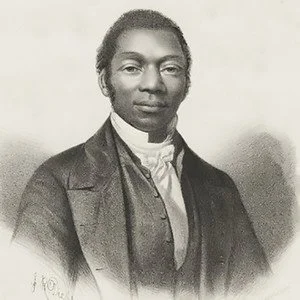Black History, Education, Black Doctors and Yale University
The name Dr. Edward Alexander Bouchet rings loudly on the campus of Yale University as the school’s first African American graduate in 1874. Bouchet would go on to greater glory as the first African American and only sixth person in the nation to earn a PhD in Physics.
Bouchet’s incredible accomplishments inspired numerous individuals to reach for the heights and overcome discrimination, racial segregation, and societal limitations in academia and beyond. At Yale, scholarships and chairs were established in his name, including prominent placement of an oil painting in the school’s main library.
This narrative of Bouchet as the University’s first Black graduate, although powerful in itself, began to change with the finding of documents indicating that 2 decades earlier, Yale had awarded a degree to another African American—Dr. Richard Henry Green.
Born in 1833 in New Haven, Conn., Green passed the entrance exam in 1853 and earned a Bachelor of Arts degree in 1857. He taught school in Milford, Conn., and later taught at the Bennington Seminary in Vermont. He went on to study medicine at Dartmouth and fought in the Civil War as a member of the Navy from 1863 until the end of the war. He married, had a daughter, and died in 1877 in Hoosick, N.Y.
Dr. Edward Alexander Bouchet
This history might have been lost if not for the discovery of a collection of 19th century documents brought to Swann Auction Galleries in New York, which noted: “Five colored men have been graduated from the different schools of Yale. The first was Richard Henry Green of the class of 1857.” (Another was Cortlandt Van Rensselaer Creed, who graduated from the Yale School of Medicine the same year.)
For the full story visit: Discovery Leads Yale to Revise a Chapter of Its Black History.
But wait, the story doesn’t stop there.
More research reveals that James W.C. Pennington, who audited courses at Yale Divinity School in the 1830s, may have actually been the first African American to attend the college, though he did not graduate.
Pennington was born into a life of slavery on Maryland’s Eastern Shore in 1807 and at age 20, he fled to Pennsylvania to escape the brutal plantation life. He arrived at Yale in 1834, and though he was not allowed to enroll, he audited courses from the back of the classroom, prohibited from participating in classroom discussions and from taking books from the library.
James W.C. Pennington
Interestingly, according to one source, while Yale provided opportunities for some African Americans, it also played a role in blocking the first attempt at creating what would become our Historically Black Colleges and Universities (HBCU).
According to Yale, Slavery and Abolition, “Simeon Jocelyn was the dogged force behind the efforts to establish a ‘Negro college’ in New Haven. After attending Yale briefly in 1823, he went on to become the founding pastor of the African-American congregation that became Dixwell Avenue Congregational Church. Jocelyn joined forces with Arthur Tappan, who moved to New Haven in 1828. With the help of his brother Lewis, Arthur Tappan purchased land for the college in the southern part of New Haven and committed $1000 seed money for a fundraising drive to build the college.”
The publication goes on to explain that the idea for a “Negro college” in New Haven was stopped in its tracks by Yale and New Haven residents, and instead of New Haven being the birthplace of HBCU’s, “The first college established for African-Americans in the U.S. was ‘Lincoln University,’ established in Pennsylvania in 1854. For twenty-two years after New Haven stopped Jocelyn's proposed ‘Negro college’ from opening its doors, there remained no African-American institution of higher education (135).”
The HAVI celebrates ancestors Bouchet, Rensselaer Creed, Green, and Pennington for their incredible accomplishments and their refusal to conform to the onerous restrictions that were placed on their freedom during a racially virulent era of our nation.



